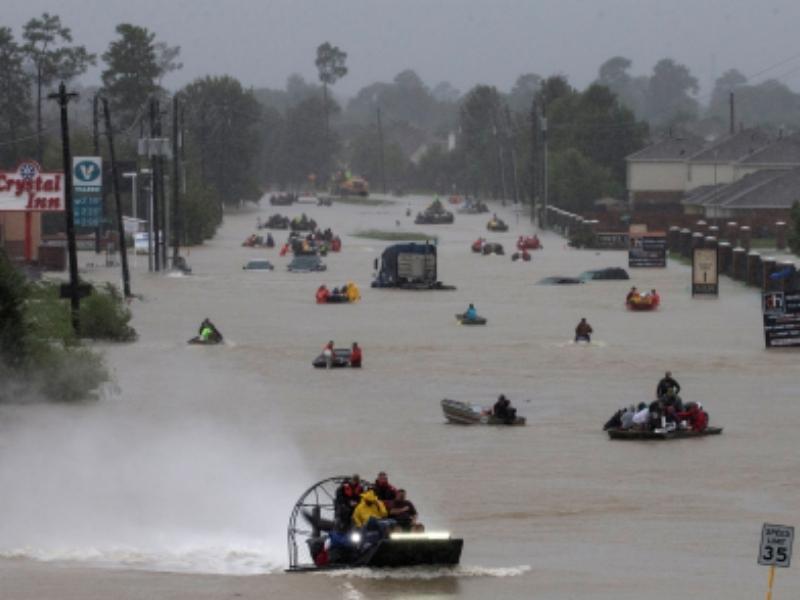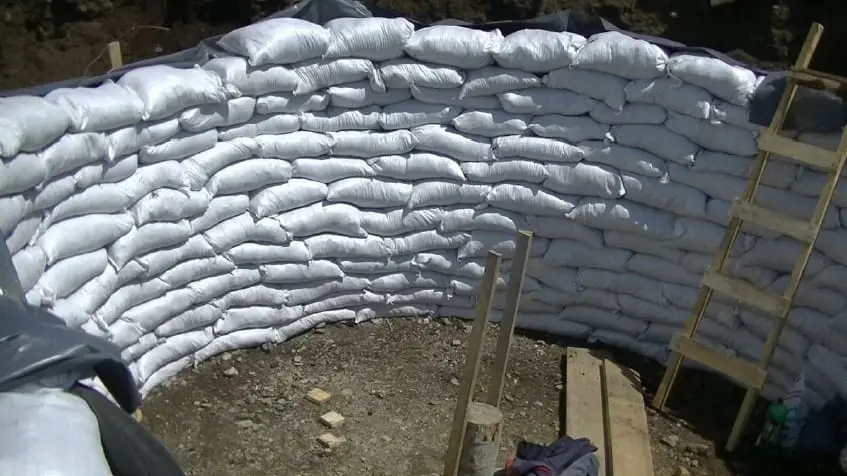SHTFPreparedness may collect a share of sales or other compensation from the links on this page.
Natural disasters have become ever more prevalent. As we start to experience the effects of global warming we have been subject to more natural disasters across the board and often even out of season for things like hurricanes.
Wildfires, heat waves and floods have become daily occurrences and disrupt much larger areas than ever before.
Knowing some key survival tips around staying safe during natural disasters can literally save your life. Each natural disaster brings with it its own challenges.
It is important to keep in mind which natural disaster you are dealing with as a tip for surviving one could mean more danger for another.
We will go over some top survival tips for the most common natural disasters and how you can best get through them.
General Survival Tips For All Natural Disasters
- If you have been told to evacuate your area do so as quickly and as safely as possible to get to a safe zone.
- If you have not been told to evacuate, stay where you are. Do not try and go out and potentially end up in a dangerous area.
- Within your home or safe area try and go to the safest place possible, this may be a basement or the lowest level or highest level in your home. Try and keep your survival kit on hand with you wherever you decide to hunker down.
- Listen to emergency broadcast updates to find out what authorities are advising to do. Having a good quality radio that can be powered through various means besides electricity is useful for this purpose.
- If you are without power you can use a generator with care as indicated and ensure you have sufficient ventilation when running it.
- Stay in your safe area until you are advised you can leave again. Trying to venture out before this can result in you being injured in the after effects of the natural disaster.
Basic Emergency Kit Items To Survive Natural Disasters
- Enough non-perishable food and safe drinking water to last you and your family at least 2 weeks if possible. If not a minimum of a 72 hour supply should keep you going long enough to get alternate sources.
- Essential documents safely stored in a waterproof storage bag if possible. Things like birth certificates, IDs and passports that if destroyed would be a struggle to do without until they can be replaced.
- Cash on hand is a rarity these days but after a natural disaster using your card is likely not going to be possible so cash can help keep you going.
- A basic first aid kit to be able to tend to any minor injuries until help arrives. Any necessary prescription medication as well if possible.
- Power source like a power bank to keep your essential electronics charged.
- Light source like a torch or candle or matches.
- A change of clothes that can keep you warm and dry if necessary
Tips For Surviving Specific Natural Disasters
Flooding
Floods have become much more prevalent and flash floods can strike suddenly and without warning. Knowing what to do in a flood is important to keep you and your family safe.
- If you know a flood is coming try to get out early. Look for various routes in case your usual one is blocked.
- Follow instructions from authorities and do not think you know better.
- Head for higher ground where you can be safe from the rising flood waters. If this is at home, head for your roof.
- Never enter flowing water like a river, you may think you can make it across but depth and current strength can be deceiving and you could end up in danger quickly.
- After the flooding has stopped, never enter the flood water as there are still further dangers in the sludge and debris left behind.
Earthquake
Earthquakes can happen quickly and despite early warning systems you may still find yourself stuck in the middle of a ground shaking event. Depending on the earthquake’s severity you may find the whole building falling down around you. Some tips to keep you safe in an earthquake include:
- Get low and take cover. Try and find a stable item to hide under like a table that can protect you from other falling furniture or household items.
- Despite doorways being recommended as a safe zone they can actually be dangerous as you can get injured by the door.
- Avoid being near any items containing glass like light fixtures, etc. as you could get cut by shattered glass.
- Do not use an elevator during an earthquake, rather take the stairs if you have to evacuate a building.
- Do not enter a damaged building after a quake as it could collapse
- Beware of aftershocks and also tsunami’s if you are on the coastline where further danger and damage can occur.
Hurricane, Cyclone or Typhoon
Tropical or subtropical regions are known for these types of natural disasters. Hurricanes and associated tropical storms tend to be seasonal so one big tip is to avoid regions when you know these seasonal storms are more likely to hit. Some other hurricane tips for if you are in an area where you could be affected:
- Monitor weather closely and have alerts set for any potential severe weather.
- If authorities advise evacuation do not hesitate to leave immediately.
- If it is too late and you are unable to leave, keep away from any windows which could shatter on impact of the high speed winds. Try and stay in the most inner rooms where there are little or no windows.
- Avoid going outside until you are completely certain it is safe to do so. If you are in the eye of the hurricane things may seem calm for a period before it passes through and the rest of the hurricane blows through.
Tornado or Twister
A weather system that is formed inland away from the ocean, a tornado is a high speed vortex of air extending from the sky in a funnel shape all the way down to the ground. Depending on the severity a tornado could uplift an entire house. See how to keep safe during a tornado below:
- If a tornado warning has been issued it is important to hunker down as quickly as possible.
- Head to a basement if you have one, otherwise to a bathroom or any other windowless room to ride out the tornado.
- Try and cover yourself with a mattress or some other sort of padding lying face down to protect yourself from any flying debris. Avoid hallways which can become wind tunnels.
- Pay close attention to the weather and listen out for emergency announcements to know when it is safe to emerge.
Final Thoughts
These are just some of the natural disasters you may encounter but the main tip in each one is to stay alert and aware of weather warnings and evacuation orders. As they say, prevention is better than cure and if you can avoid a natural disaster altogether that is the best. However should you be stuck in the middle of a natural disaster you now have some quality tips to help you survive.
Other Related Article
Bonus: Root Cellar That Can Be Used as a Bunker
Do you remember the old root cellars our great-grandparents used to have? In fact, they probably built it themselves, right in their back yard.
If you want to learn how to build a backyard bunker like your grandparents had, without breaking the bank, then you need Easy Cellar.
Easy Cellar will show you:
- How to choose the ideal site
- Cost-effective building methods
- How to protect your bunker from nuclear blast and fallout
- How to conceal your bunker
- Affordable basic life support options
Easy Cellar will also reveal how a veteran, with only $421, built a small nuclear bunker in his backyard.







